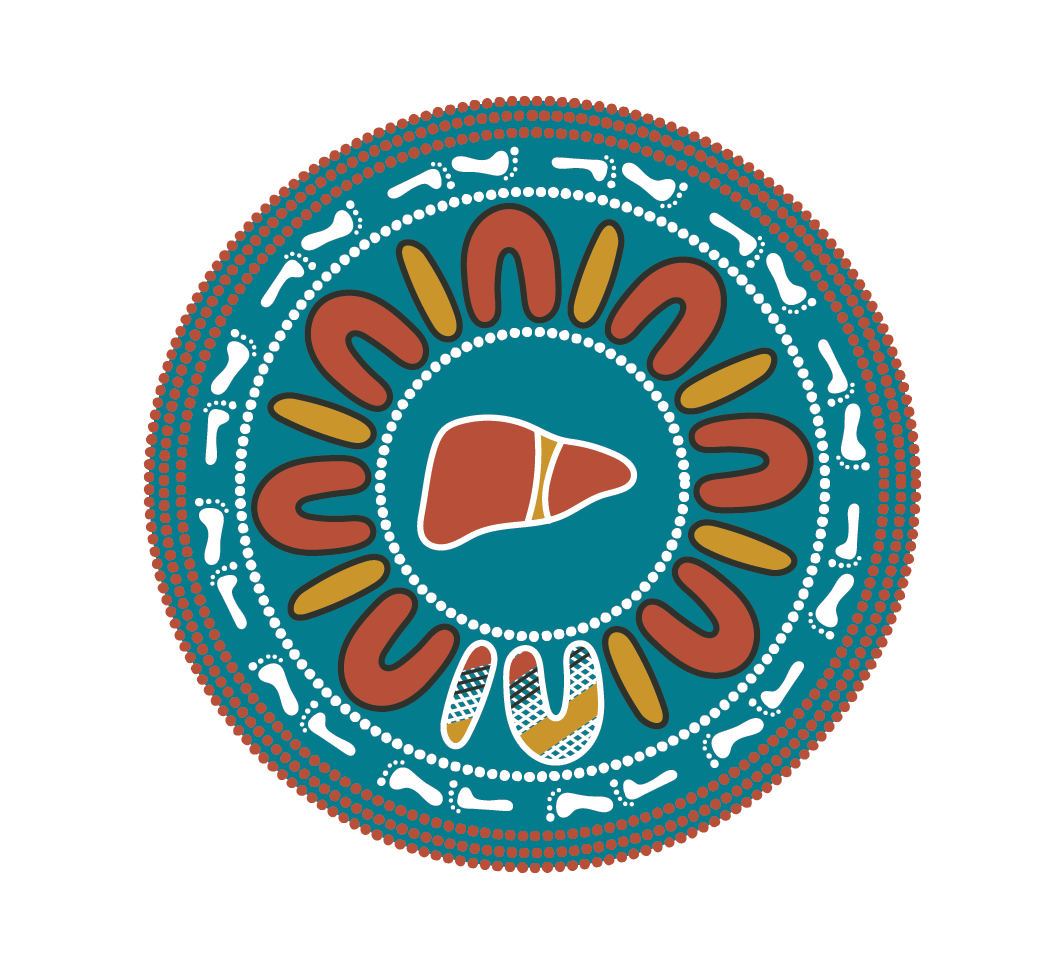***Clinics and Service Providers – Click here to access the Hep B Care page
Powerful and Free tells the story of Bec’s experience with hepatitis B. Since her diagnosis Bec has come to understand there is a lack of understanding about hep B – both from health care providers and Indigenous community.
“It’s travelled through the generations because many barriers stand in the way of access to treatment which must be broken down before we can begin to address how the virus is transmitted and what it means to be a carrier,” Bec said.
These issues are raised in the film, which was made as part of Hepatitis Queensland’s B Stronger campaign.
Hep B is a virus that can make your liver sick. It can cause inflammation and damage to your liver, and if left unmonitored and untreated it can cause chronic liver disease and liver cancer.
Most people with hep B won’t feel unwell. Hep B can be a family illness passed from mum onto her babies, so knowing your family history is important.
If you’re not vaccinated there’s a number of ways you can get hep B.
You can get hep B from:
- blood-to-blood contact
- sexual contact through semen and vaginal fluids
- when a mother living with chronic hep B transmits the virus to her baby, usually at birth – this is called vertical transmission.
Hep B is present in other body fluids, such as breast milk and saliva; however, not in high enough quantities to cause transmission.
Are you at risk of hep B factsheet

Story Book
Auntie May and the dodgy tattoo
Auntie May and the dodgy tattoo follows the story of Iluka, Janalli, Miro and Bindi as they learn about the hepatitis B virus.
This beautifully written and illustrated comic was created in partnership with Carbal Medical Services.
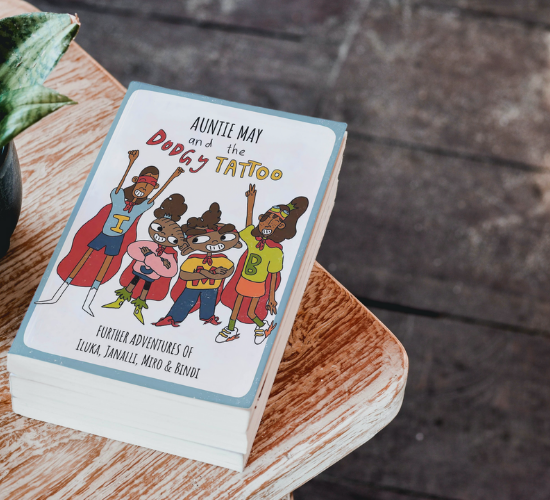
Animation
Auntie May and the dodgy tattoo
The story book of Auntie May and the dodgy tattoo is now an animation as well. This video brings to life the characters of Iluka, Janalli, Miro and Bindi as they learn about the hepatitis B virus.
A blood test is the only way to know if you have hep B. This simple blood test can show if you have:
- had acute hep B in the past,
- been vaccinated previously,
- have a current infection.
These blood results will also tell your doctor a great deal about what is going on inside your liver – importantly, what phase the virus is in, what care is needed, and if treatment is needed.
The blood test for hep B is not always included in a 715 Adult Health Check, you might need to ask your doctor for it.
Hep B Testing Chart
The Hep B Testing Chart details the tests needed for hepatitis B and what the results mean. You can download the chart and take it to your clinic or doctor.
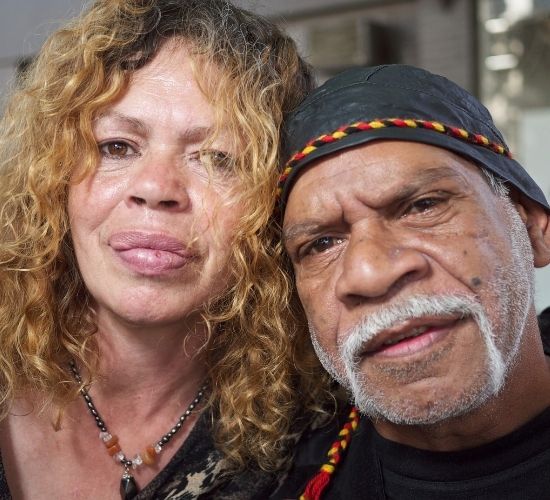
The simplest and best prevention against hep B is vaccination.
Hep B vaccinations for adults
- The standard adult immunisation for hep B is three injections given over six months (at zero, one, and six months).
Hep B vaccinations for babies and children
- Babies and children have four doses of the vaccine over six months. The first dose is generally given in the hospital after birth, and then at two, four and six months
- The hep B vaccination is 95% effective.
Ask at your local clinic if you are vaccinated or how to get your jabs done.
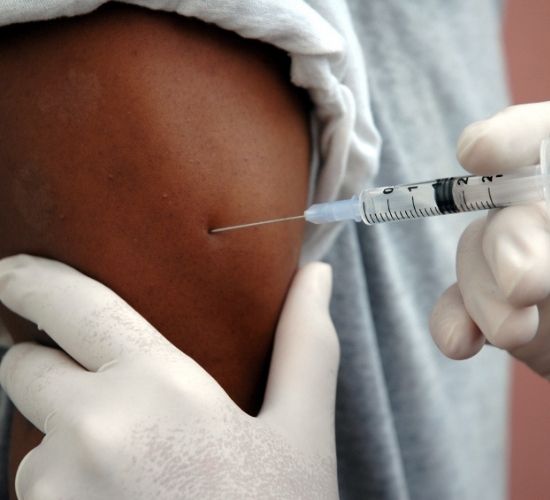
Being diagnosed with chronic hep B can be upsetting; however, there is lots of information and support available.
The most important message is that chronic hep B is a very manageable chronic condition, like diabetes. With some positive lifestyle changes, people living with chronic hep B will live a long and healthy life.
Having a regular six-monthly check-up is the most important thing you can do if you are living with chronic hep B. These check-ups will look at what is going on inside your liver, and what care, management and treatment may be needed.
How to look after your liver
Some simple lifestyle changes that will positively impact your health and liver include:
- reducing or avoiding alcohol – alcohol can increase the chance of liver damage
- eating a well-balanced diet
- getting regular exercise
- trying to maintain a healthy body weight
- reducing stress and getting support
- resting when needed.
Once you are living strong with hep B, you can help to educate and empower your family and community to be vaccinated and tested for hep B.
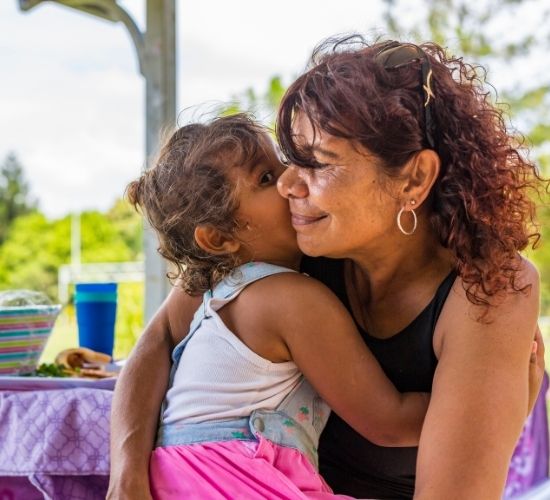
Aboriginal Medical Services across Queensland can provide hepatitis B testing, vaccinations, check-ups and treatment. The following websites will help you to find your nearest clinic:
You can also access hepatitis B testing and vaccinations at other health services such as your GP or sexual health clinic.
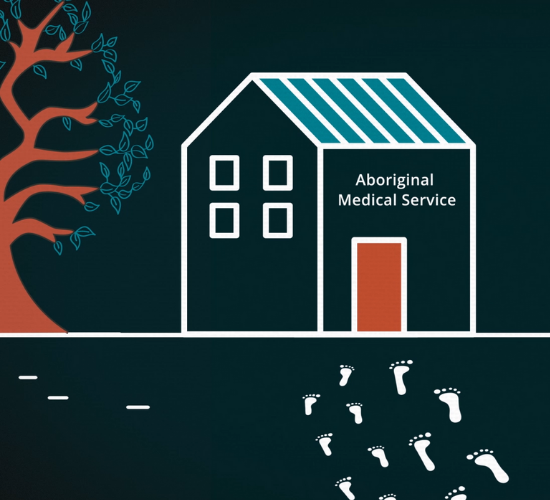
The B Stronger artwork (pictured right) was commissioned as part of the B Stronger hepatitis B project and signifies the many individuals, communities and health services working together to target hep B.
Artist Joe Malone, who runs Jagalingu Aboriginal Creations, has provided a detailed description of the many elements that make up the art piece:
“Hep B is a health condition that requires a united approach. It involves individuals, communities, and health services working together and this art piece captures these elements.
The small circles, lines and crosshatching represent the song lines and story lines urging communities to attend their local Aboriginal Medical Service to yarn about, be tested, be vaccinated, or have a checkup for hep B. The footprints represent the travelling to and from these health services.
The larger circles represent the Aboriginal Medical Services where people have journeyed to and from. These circles include the symbols for male and female to represent both the community members and the staff working in these services. A liver has also been included in the centre of each circle as hep B impacts our liver health. The Hepatitis Queensland staff are the crosshatched symbols sitting in these circles yarning with community and educating them about hep B and liver health.
At the centre of the painting is the Hep B Family Tree which is a visual tool used for hep B education, with the branches reminding us to:
- B Tested
- B Vaccinated
- B Stronger
Sitting around the Hep B Family Tree are figures to represent the individuals in the community who may be at more risk of hep B. These are young people aged 15-25 years, men and women 50 years and over, as well as mum’s with hep B and their bubs.”
The Artist – Joe Malone
Joe Malone is a descendant of the Kangoulu and Jagalingu people from the Central Western region of Queensland. Joe is the owner of Jagalingu Aboriginal Creations which was established in 1992 creating and producing high-quality Aboriginal artefacts, paintings, and other products.
Joe had the great fortune of being mentored in his craft by Joe Skeen Senior, a KuKu – Thaypan elder, and a third-generation Aboriginal artefact maker in 1988. The skills that were instilled in Joe included creating and painting traditional Aboriginal artefacts, along with a strong work ethic and a sense of the importance of why Aboriginal people need to continue their own culture. This mentorship and inspiration continues to this day.
